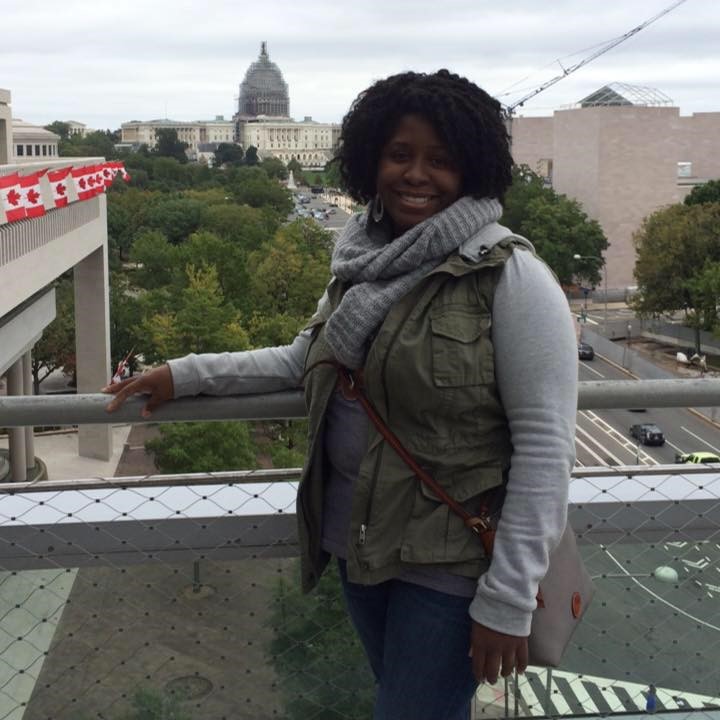The Alternative Voices Feature is brought to you by the NMRT’s Membership, Diversity, Promotion, and Recruitment committee. It is meant to give a platform to the voices of librarians from underrepresented communities in the library field. The format of the feature is a journalistic question and answer format. It provides information that the librarian wants people to know about them, plus their thoughts on the current state of the field of librarianship.
Name – Maegen Rose
Contact Information – maegenj.rose@gmail.com
City & State – Brooklyn, NY
Position Title – Middle School Librarian
Length of time in the library field – 5 years
Tell us a little bit about your background. Where did you attend college? What degrees do you have? What programs (undergraduate or graduate) prepared you for your current position? Tell us about your position and what you do? What is your definition of diversity, or equity or inclusion?
I started my career in education as a project manager for a charter school network on Chicago’s south side after earning an MA in Social Work from the University of Chicago and BA’s in Black Studies and Gender and Feminist Studies from Pitzer College. I enjoyed working in schools but wanted to deepen my work with children. Becoming a librarian seemed like the natural next step. I was always an avid user of both my school and public libraries. I enrolled in Dominican University’s graduate program in Information Studies and earned my MLIS. For the past five years, I have worked as a school librarian with students in kindergarten through grade 12.
Currently, I am the Middle School Librarian at Rye Country Day School in New York’s Westchester County. My days are filled with teaching 5th and 6th-grade library classes, supporting 7th and 8th-grade research units, providing readers’ advisory and reference services for the larger 5-12 community, and all the day-to-day responsibilities of growing and maintaining an inclusive and culturally competent middle school library collection.
As a black woman whose library career has solely been in predominantly white independent schools, my definitions of diversity, inclusion, and equity have shifted significantly. Right now, my work with students is about meeting them where they are, yet challenging traditional notions of information literacy and library programming. My approach to collection development centers the voices and experiences of marginalized communities in the library collection.
How are you becoming or staying in involved with the wider profession?
I stay involved in the profession in many ways. I am a member of the American Library Association and the Hudson Valley Library Association. I maintain an active social media presence, following and engaging with many library professionals, publishers, and advocates. I have subscriptions to and read a variety of library magazines and journals such as School Library Journal, American Libraries, The Horn Book, Knowledge Quest, and Children and Libraries: The Journal of ALSC. As well as conference attendance.
What groups or roundtables are you involved in with ALA?
I am a member of the Association of Library Service to Children (ALSC), American Association of School Librarians (AASL), Independent Schools Section (ISS), Ethnic & Multicultural Information Exchange Round Table (EMIERT), Coretta Scott King Book Awards Community, and Black Caucus of the American Librarian Association (BCALA). Currently, I am serving a two-year appointment on the ALSC Budget Committee and the Coretta Scott King Book Awards Jury.
Do you have any advice for new graduates applying to jobs?
I recommend being open to a wide range of positions, especially if you are uncertain of which type of library you’d like to work. Also, I recommend not worrying about the job title. Focus on applying for positions that will give you the greatest amount of library experience.
What can prospective librarians be doing right now to prepare themselves for a career in this field?
Prospective librarians should be reading everything from literature to library magazines and journals. They should be actively involved with professional associations and interacting with other professionals in the field.
When you were growing up, did you feel that the libraries accurately reflected the community you lived in?
Absolutely. I grew up in predominantly black communities. My public library not only reflected my community but was a lifeline to resources and services beyond checking out books. As an adolescent, my public library was a safe space after school to do homework and hang out with friends.
What trends are most impacting the field right now?
Currently, we are having national conversations about race and representation in children’s literature. Many librarians are pushing back against the continued use and promotion of racist literature. This work must continue and we must amplify the voices of those advocating for children’s literature that offers all children opportunities to see themselves.
What’s the best lesson you’ve learned on the job?
As a school librarian, I’ve learned to listen to my students from the oldest to the youngest among them. They are a source of unusual and fun knowledge. I learn from them every day and continue to grow as a librarian because of them.
What book do you find yourself pushing onto patrons the most?
This past year, there were four books that I recommended most to my students, especially my 5th and 6th graders. Those books were The Parker Inheritance by
Varian Johnson, Front Desk by Kelly Yang, Ghost by Jason Reynolds, and Be Prepared by Vera Brosgol.
Do you have a blog/website?
I am on Twitter and Instagram at @librarianMaegs

